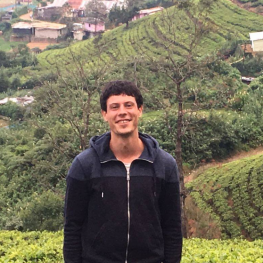Start
20 March 2018 - 12 h 30 min
End
20 March 2018 - 14 h 00 min
Address
30 Avenue Antoine Depage - 1050 Brussels (Room DC8.322 - 8th floor, Building D, Campus Solbosch of the Faculty of Psychology and Educational Sciences - Université Libre de Bruxelles) View mapCategories
Departement SeminarUncovering social cleavages after a civil war:
A methodological proposal for the assessment of social identities in surveys
Recent social psychological research contributed three important insights about the way social identity may play a part in intergroup conflict and hence about how we should study its role: (1) there is always a multitude of intersecting social categories involved in a conflict, and it is problematic to pick out one or two of these categories and leave everything else unobserved (2) there are qualitatively different modes of relating to social categories that are relevant to the self, which cannot be subsumed under the sole umbrella of identification and (3) social categories do not only shape social conflicts when people embrace them, but also when they are part of perceived social norms. I this talk, I will introduce a methodological approach which attempts to integrate these insights while assessing social identity in conflict-torn societies through surveys. I will present empirical data from two surveys realized in post-war Sri Lanka, which were collected thanks to a new measurement tool. I will notably show that this method enables us to identify social cleavages that remain invisible when using classical social identification scales and how these cleavages are consequential in shaping social representations of the conflict through the circulation of war narratives.
—
Zacharia Bady is a PhD student at the University of Lausanne in Switzerland. His work mainly focuses on how large-scale political violence shapes social identities and constraints the expression of political views and conflict-related narratives. He is part of the Pluralistic Memories Project, which notably aims at documenting the diversity of memories in war-torn societies (i.e. Burundi, Sri Lanka and Palestine) and studying whether the preservation and circulation of this diversity can foster collective resilience.


